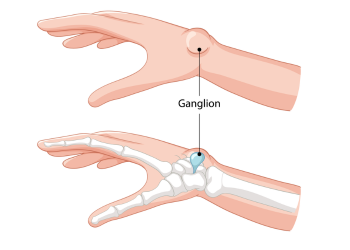Irritable Bowel Syndrome (IBS)

Irritable bowel syndrome (IBS) is a common disorder that affects the
stomach and intestines. Symptoms include cramping, abdominal pain, bloating,
gas, diarrhea or constipation, or both.
Some people can control their symptoms by managing their diet, lifestyle,
and stress. More severe symptoms can be treated with medication and counseling.
SYMPTOMS
- Abdominal pain, cramping, or bloating related to a bowel movement
- Diarrhea and constipation alternate
- Bowel movements tend to be frequent
- A sensation of incomplete evacuation and increased gas or mucus in the
stool.
- Weight loss
- Diarrhea at night
- Rectal bleeding
- Iron deficiency anemia
- Unexplained vomiting
- Pain that isn't relieved by passing gas or stool
CAUSES
The exact cause of IBS isn't known. Some factors that appear
to play a role
- Muscle contractions in the intestine: Contractions that are stronger and
last longer than usual can cause gas, bloating, and diarrhea. Weak contractions
can slow food passage and lead to hard, dry stools.
- Nervous system: Poorly coordinated signals between the brain and the
intestines result in pain, diarrhea, or constipation.
- Severe infection.
- Early life stress.
- Changes in gut microbes.
- Food: Many people have worse IBS symptoms when they eat or
drink certain foods or beverages like wheat, dairy products, citrus fruits,
beans, cabbage, and carbonated drinks.
- Age: IBS occurs more frequently in people under age 50.
- Sex. Females are prone to get IBS.
- Family history of IBS.
- Anxiety, depression, or other mental health issues.





